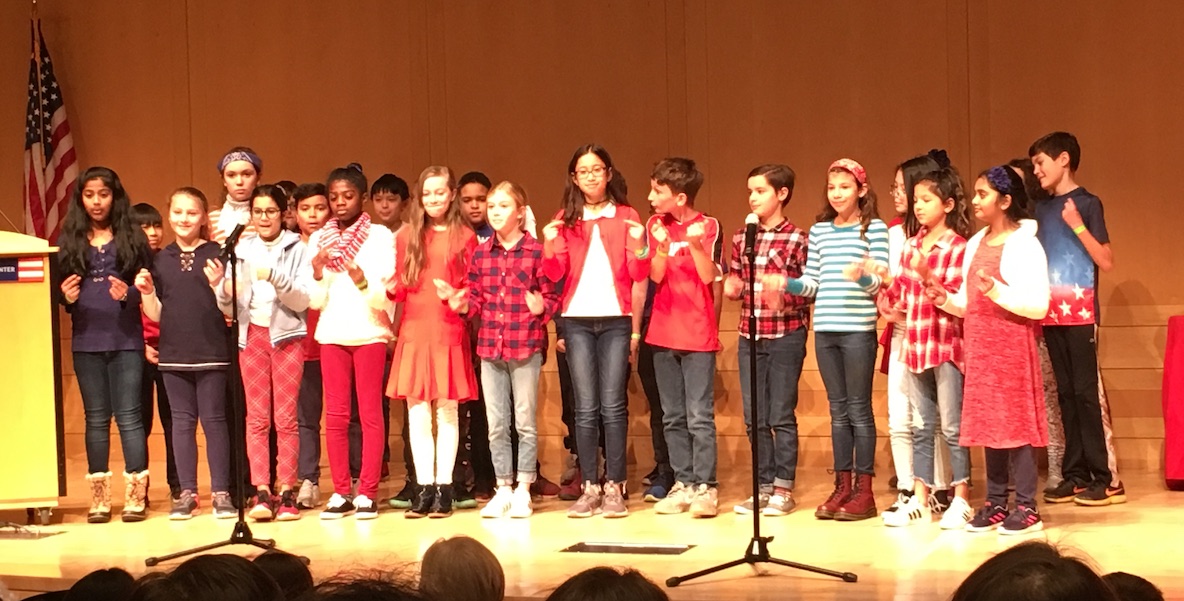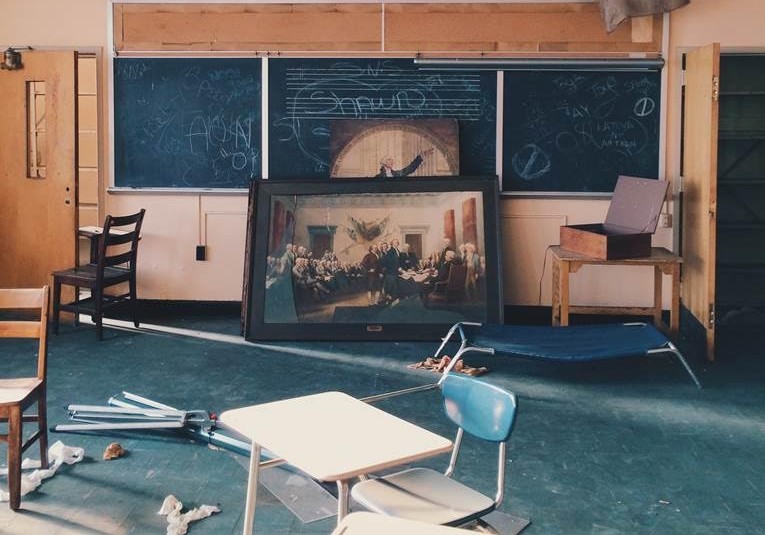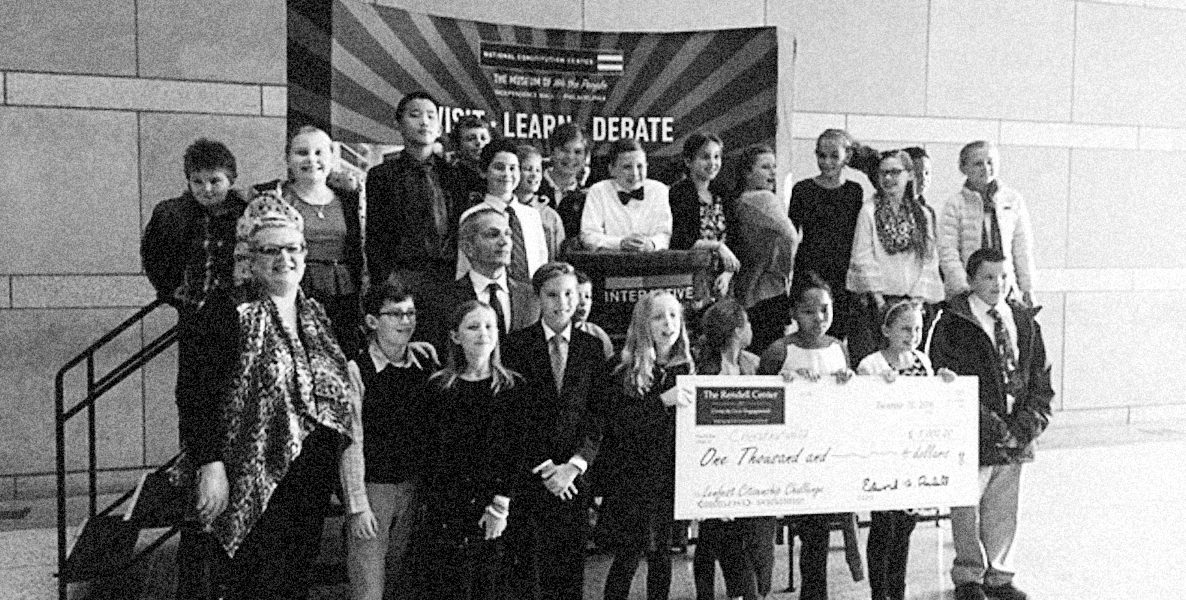First, a caveat: As a journalist (and an American!), the First Amendment is my favorite of all the amendments. I mean, it contains all the right rights: Press, speech, religion, assembly, petition. (I am also partial to the 19th, giving women the right to vote.)
But no lie (get it?), the last couple of years have been tough on my friend. It’s had to do a lot of work, reminding Americans—and our leaders—of the rights it contains. Yes, you can kneel during the anthem, or even burn an American flag. You can march for women, and gun control, and immigrants—and shout for change while you’re at it. You can say unfavorable things about our president in the press, or even on his favorite media platform, Twitter. You can practice whatever religion, or no religion, that you want.
Sign up for our weekly newsletter and get the latest Philly updates. SIGN UP!
And you should.
What you should not do is take those rights for granted. Just ask the region’s fourth and fifth graders, several hundred of whom participated in the Rendell Center for Civics and Civic Engagement’s annual Citizenship Challenge this week (which is, by the way, Bill of Rights Week).
For the last six weeks, around 120 classes in the area researched, discussed and wrote essays answering the Center’s question of the year: Why is the First Amendment important to you? Of those, 12 were selected to present their ideas in a three-minute skit, rap, speech, or song on stage before four judges at the Constitution Center: Former Governor Ed Rendell; Honorable Marjorie Rendell; Rev. Herbert R. Lusk; and attorney and Rendell Center board member Larry Brown.
The judges then asked the students questions to probe their knowledge a bit further, about voting and protests and religious freedoms, often nudging the kids towards topics of the day, like gun violence and attacks on religion. (The Governor tended towards the tough questions: What gave Pennsylvanian’s the rights of the First Amendment even before there was a Constitution? Answer: The Pennsylvania Charter.) The essays and presentations each counted for 50 percent of the score.
In the end, Judge Rendell says, they could have named seven teams among the winners; as it is, they had a tough time choosing four. The Northeast’s Anne Frank Elementary School came out on top, winning $1,000 for the school, followed by Buckingham Elementary in Furlong; Merion School; and Radnor Elementary. (Another caveat: My daughter’s class was among the 12 finalists, though not one of the winning teams.)
Past citizenship contests have addressed issues of term limits and the electoral college. This year, as always, the question was pulled from the public conversation. “There has been so much in the news that has to do with the First Amendment, whether protesting against guns like the young people in Parkland, Florida, or protests by NFL players, or the Muslim travel ban,” says Judge Rendell. “We felt it was time to drill down and say, ‘Why do we value it?’”
The Rendell Center launched in 2013 as a response to the growing ignorance of American civics among school-aged children and even adults—something that seems to coincide with the decline of civics education in school. Now based at Penn’s Annenberg Public Policy Center, it hosts literature-based mock trials—as in, The People v. Goldilocks—with Judge Rendell or another colleague sitting on the bench in Federal Court, as well as professional development for teachers. On Thursday, just after talking to me, Rendell was headed back to the Constitution Center, in her robes, for another service: Talking to students from Western Pennsylvania about the role of courts and being a federal judge.
In 2015, the Center launched its first citizenship contest with the question: Should the Constitution be changed to allow foreign-born citizens to become President? This year, Rendell says they expanded the contest to Pittsburgh, with that same question—with very different results. “Five years ago, no one was really talking about immigration,” she says. “This year, it’s on everyone’s mind. A lot of the discussion was about diversity and change.”
It was a magnificent display of what our American future promises, with civic-minded, open-hearted young people leading the way for change where it’s needed, and upholding what’s best in this country—our fundamental freedoms—when needed.
The presentations at The Constitution Center Tuesday were also, in many ways, about diversity and change—about, in other words, America. Many referred to the variety of religions in their classes and their communities, to William Penn’s founding of Pennsylvania as a free state for worship; they talked about the rights in the First Amendment through time, from our Founding Fathers to the current year’s wrenching events. Many referenced the NFL, a debate that Rendell says they considered making the whole focus of the year’s contest. “We decided it was too emotional, not cerebral enough to really think about,” she says.
It was a magnificent display, in many ways, of what our American future promises, with civic-minded, open-hearted young people leading the way for change where it’s needed, and upholding what’s best in this country—our fundamental freedoms—when needed.
As Governor Rendell gave out the awards, he looked out at the dozens of young people looking back at him and observed what was clear to all of us: “Not only are you all going to grow up to be good citizens,” he said, “but here there are also future mayors and senators and governors— and maybe even a president of this country.”





